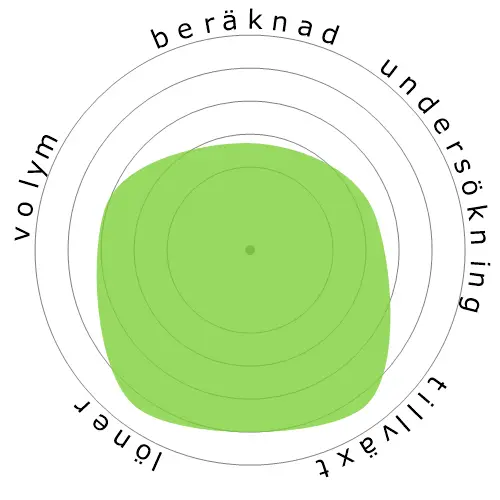Informationssäkerhetsanalytiker




Personer tittade också på
Beräknad automatiseringsrisk
Måttlig risk (41-60%): Yrken med måttlig risk för automatisering involverar oftast rutinmässiga uppgifter men kräver fortfarande en viss mänsklig bedömning och interaktion.
Mer information om vad detta betyg är, och hur det beräknas finns tillgängligt här.
Användarundersökning
Våra besökare har röstat att de är osäkra på om detta yrke kommer att automatiseras. Detta bedömning stöds ytterligare av den beräknade automationsrisknivån, som uppskattar 58% chans för automation.
Vad tror du är risken med automatisering?
Vad är sannolikheten att Informationssäkerhetsanalytiker kommer att ersättas av robotar eller artificiell intelligens inom de närmaste 20 åren?
Känsla
Följande graf inkluderas där det finns en betydande mängd röster för att ge meningsfull data. Dessa visuella representationer visar användaromröstningsresultat över tid och ger en viktig indikation på sentimenttrender.
Känslor över tid (årligen)
Tillväxt
Antalet 'Information Security Analysts' lediga jobb förväntas att öka med 32,7% till 2033
Total sysselsättning och uppskattade jobböppningar
Uppdaterade prognoser beräknas 09-2025.
Löner
I 2023 var den medianårliga lönen för 'Information Security Analysts' 120 360 $, eller 57 $ per timme.
'Information Security Analysts' betalades 150,4% högre än den nationella medianlönen, som låg på 48 060 $
Löner över tid
Volym
Från och med 2023 var det 175 350 personer anställda som 'Information Security Analysts' inom USA.
Detta representerar cirka 0,12% av den anställda arbetskraften i hela landet
Sagt på ett annat sätt, runt 1 av 866 personer är anställda som 'Information Security Analysts'.
Arbetsbeskrivning
Planera, implementera, uppgradera eller övervaka säkerhetsåtgärder för skydd av datornätverk och information. Bedöm systemets sårbarheter för säkerhetsrisker och föreslå och implementera strategier för att minska riskerna. Kan säkerställa att lämpliga säkerhetskontroller är på plats som skyddar digitala filer och vital elektronisk infrastruktur. Kan svara på säkerhetsbrott och virus i datorer.
SOC Code: 15-1212.00


Kommentarer
Leave a comment
It'll be a race between red and blue team businesses to implement increasingly better models. Social engineering sure, but meh honestly. Will you be able to find incredibly difficult scraps or oversights the model missed? Will it be worth the risk and investment of the pentester? Overall bleak outlook.
This will increase the ability of automated systems to detect any remaining vulnerabilities, but will not completely remove the need for technicians to maintain, remediate, and upgrade the systems. There will still be a need to touch the hardware. Depending on individual situation, some companies will use more of AI tech than the others. We can already see something similar in the engineering, accounting, and law practice, where paralegals and drafters have not been completely replaced by software. Sole practitioners might use automation more extensively than the large corporations, but there will be a legal requirement for a human audit.
In addition, location-independent digital nomads who train themselves to use the automation tools could do a lot of accurate work in a short amount of time, as independent consultants and freelancers, and do business with multiple clients.
Making the choice to transition from repetitive and tedious manual work to automation, will be akin to transitioning from flintstones to nuclear power. Nuclear power still needs humans, and so will information security solutions.
Lämna ett svar om detta yrke